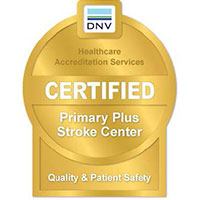Watch your stress and anxiety levels while cheering on your Wildcats
Mar 21, 2022Sporting events can trigger negative impact on heart health
Interview opportunity Wednesday, March 23 at 9am
TUCSON – March Madness is here and the Arizona Wildcats are headed to the NCAA basketball championship tournament’s Sweet Sixteen! However, this excitement can come with some added intensity and stress. It’s no myth: too much excitement from watching sports could trigger a heart issue.
Doctors from Carondelet Health Network note that stress can be harmful to those with and without heart conditions. More than 18.2 million adults over age 20 have coronary heart disease, and each year about 805,000 people in the U.S. have a heart attack, according to the U.S. Centers for Disease Control and Prevention.
Sporting events, especially when your team is losing, can have a negative impact on heart health, according to studies cited by the National Institutes of Health.
“The pandemic alone has increased stress levels for many across the country. Having added excitement, like watching an intense basketball game, can lead to even more stress. We want everyone to be aware of that and to pay close attention to how their bodies are feeling,” said Dr. Habibzadeh.
Signs of heart attack:
- Chest tightness, pain, or discomfort
- Shortness of breath
- Pain between the shoulder blades or in the arm, jaw, chest or upper abdomen
- Dizziness or fatigue
- Clammy skin or cold sweat
- Indigestion or nausea and vomiting
If anxiety is rising to extreme levels, it may be a good idea to step away from the game and take a break. Limiting alcohol, eating healthier foods and avoiding arguments will help, noted Dr. Habibzadeh. Stress and anxiety are known to contribute to health problems, so it’s important to know the risks and ways to reduce the likelihood of experiencing a heart attack and heart disease. Call 9-1-1 right away if you or someone else has any of these symptoms.
“We say in the cardiology world: Time is muscle. If you waste time seeking help, then you’ll lost muscle in your heart. So the sooner you present yourself to the emergency department, the better the outcome,” added Dr. Habibzadeh.
Dr. Habibzadeh is available for interviews on this topic:
Wednesday, March 23 at 9:00 a.m.
1707 W St Mary’s Rd Suite 101
Tucson, AZ 85710


 Carondelet St. Mary's Hospital is now a Primary Plus Stroke Center, reflecting the hospital’s investment in neuroscience talent and capabilities. The certification affirms that St. Mary's Hospital goes beyond the requirements of a primary
stroke center, with the addition of training, equipment, experience, and personnel for performing thrombectomies and post-care for the treatment of acute ischemic strokes. It is based on standards created by the Brain Attack Coalition and the American
Stroke Association, and granted by DNV GL Healthcare, a certification body operating in more than 100 countries. Thank you to our dedicated physicians, nurses and staff who truly make us A Community Built on Care.
Carondelet St. Mary's Hospital is now a Primary Plus Stroke Center, reflecting the hospital’s investment in neuroscience talent and capabilities. The certification affirms that St. Mary's Hospital goes beyond the requirements of a primary
stroke center, with the addition of training, equipment, experience, and personnel for performing thrombectomies and post-care for the treatment of acute ischemic strokes. It is based on standards created by the Brain Attack Coalition and the American
Stroke Association, and granted by DNV GL Healthcare, a certification body operating in more than 100 countries. Thank you to our dedicated physicians, nurses and staff who truly make us A Community Built on Care.